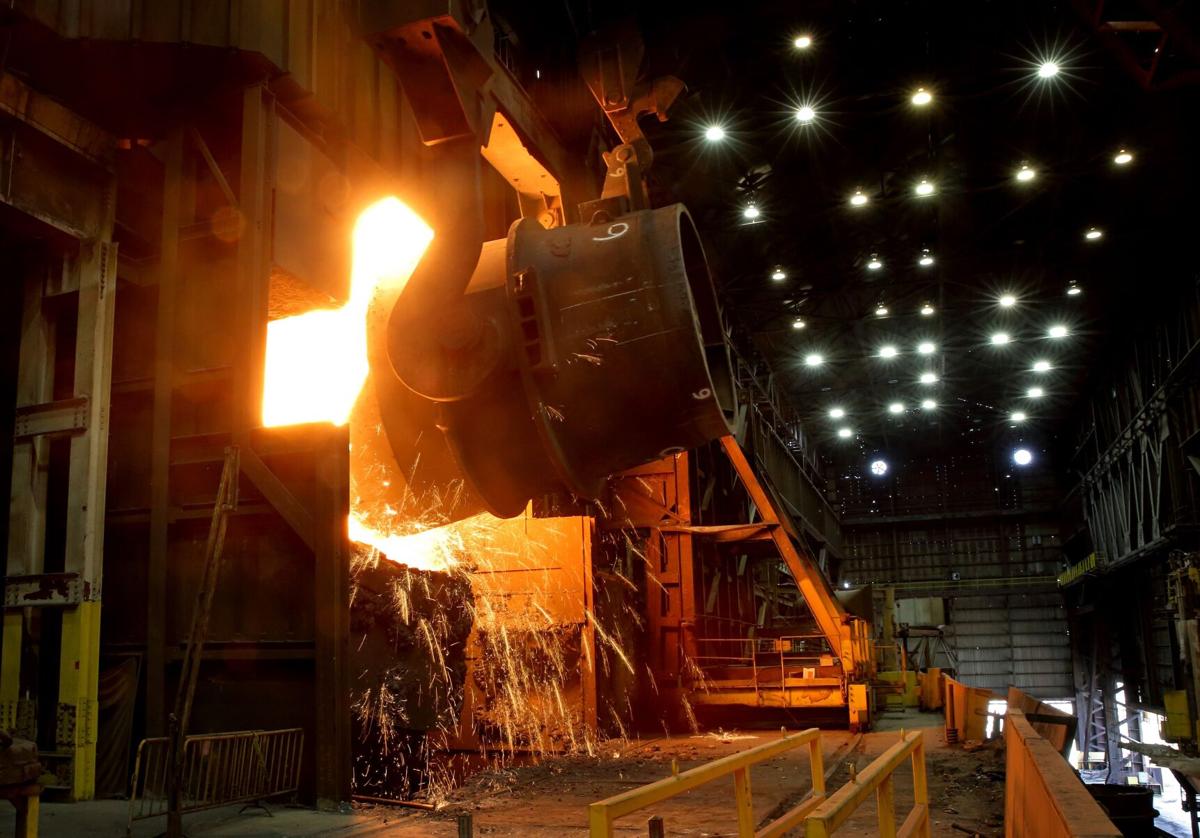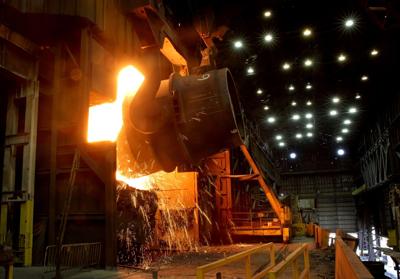Tokyo-based Nippon Steel Corporation has officially acquired U.S. Steel Corporation in a deal officials say will not reduce production capacity the U.S. Steel plant in Granite City for two years.
President of United Steelworkers Local 1899 Craig McKey said he hasn’t received any information from U.S. Steel since the deal was announced Wednesday, when the two companies said the partnership would lead to “massive investments in steelmaking” in the U.S., via press release.
The Nippon-U.S. Steel deal had been discussed for months. The union opposed it, as did then-President Joe Biden, who blocked a $14 billion deal in January in a move the White House said was to protect the domestic steel industry. But McKey said he knew it was only a matter of time.
People are also reading…
“It happened. We’ve got to live with it,” McKey said. “It’s not what we wanted to see. We’d rather U.S. Steel stood alone and invested money.”
Though Nippon has promised to keep the status quo at Granite City Works for the next two years, McKey said that doesn’t mean much, as the plant already has been operating with fewer workers since layoffs. And, they haven’t made steel there in years.
The Granite City’s plant has two blast furnaces, but neither is working. One has been shut down and the second was temporarily closed for six months last year, but no longer has a reopening date. The company’s steel rolling and finishing operations, using metal slabs from other facilities, continue at Granite City Works.
The 128-year-old mill in Granite City has 850 workers. Hundreds were previously let go or are on layoff because of the closure of the blast furnace.
McKey said the scariest part, right now, is that the union’s contract will expire in September. He’s concerned about what the next contract could look like.
“It may be some time before we hear what our freaking fate is,” McKey said.
SunCoke Energy Inc., an Illinois-based steel fabricator, previously proposed to buy both of the Granite City blast furnaces from U.S. Steel, which McKey said would be a good option. This week, SunCoke Energy said it plans to still pursue the project.
Granite City Mayor Mike Parkinson previously told the Post-Dispatch that a struggling steel plant negatively impacts local economics as restaurants and retailers see less foot traffic.
“We need to keep these factories open,” Parkinson said last September. “I’m not going to let them rust up, pollute my ground.”
And, changes at the mill don’t just impact Granite City. It’s a regional problem. While about 300 of the campus’ workers live in the Granite City ZIP code, the rest live in places like Edwardsville, Glen Carbon, Troy and ����ֱ��, Parkinson said.
Last month, U.S. Rep. Nikki Budzinski, who represents the Metro East called for robust investment into Granite City under the Nippon deal. She said she is fighting to ensure at least $500 million is dedicated to upgrading Granite City Works.
“Let’s be clear: any deal that sidelines our community or neglects existing facilities is a nonstarter,” Budzinski said in a . “It cannot — and will not — stand.”
Storms, baby bison and Simone Biles: Here's a look at May 2025 in the St. Louis area. Video by Jenna Jones.









